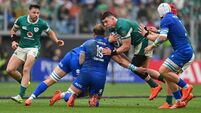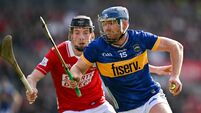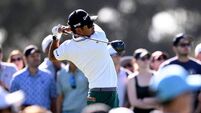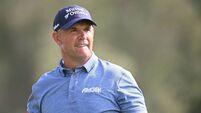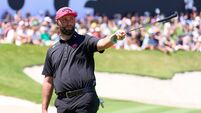Golf's silent treatment issue is now coming to a head

Rory McIlroy tees off on the 15th hole during the first round of the U.S. Open. Pic: AP Photo/Gene J. Puskar
A little cobbled courtyard in front of the scorer’s office at the Quail Hollow Club was the setting for some tough scenes last month.
Those stones saw more rejected advances than this writer’s days on a disco dance floor.




